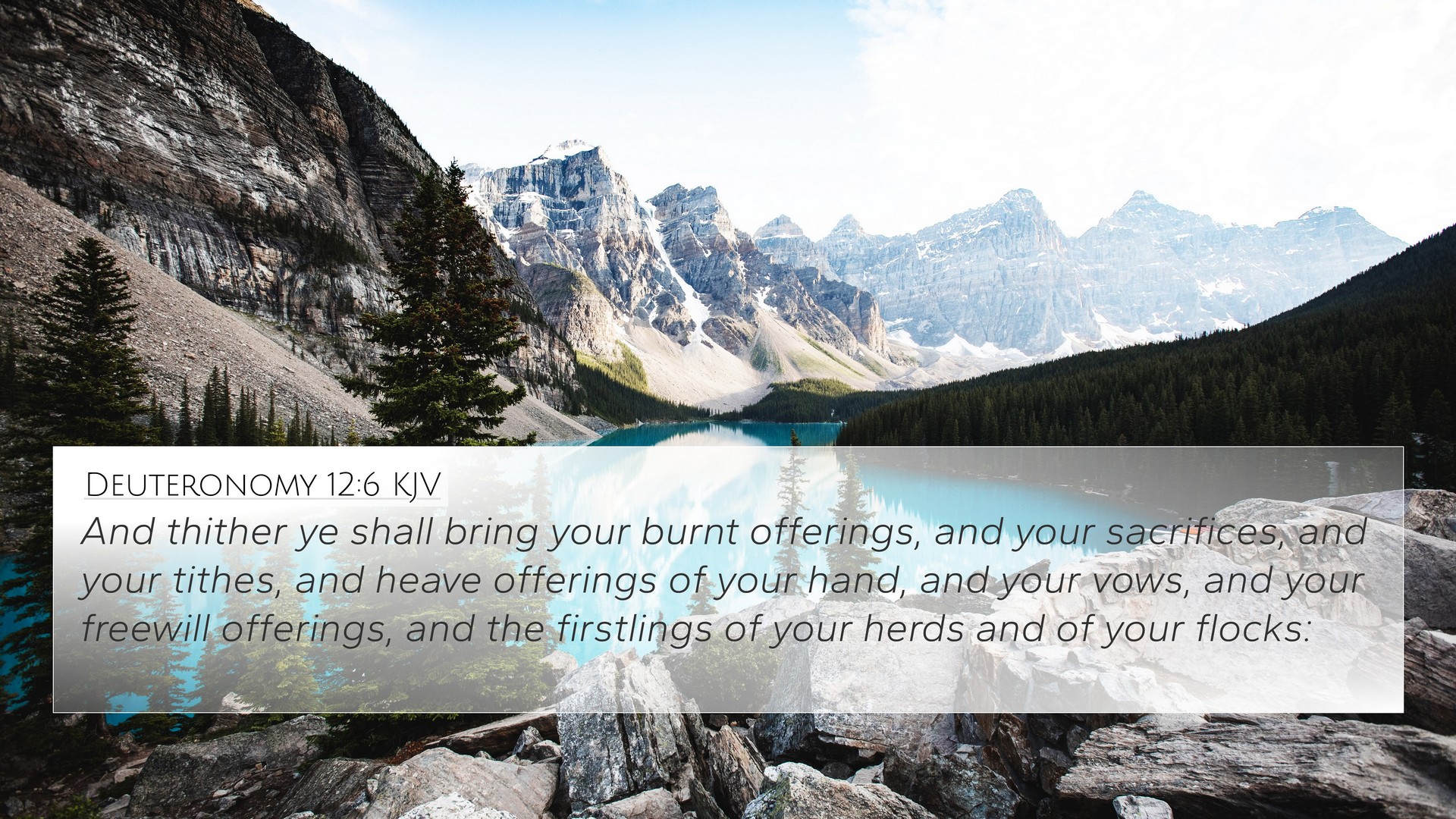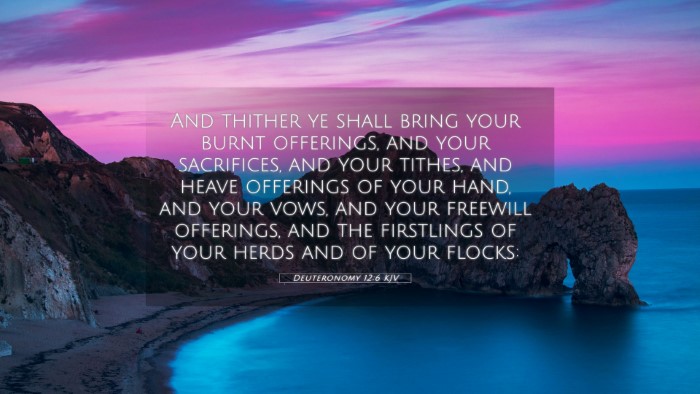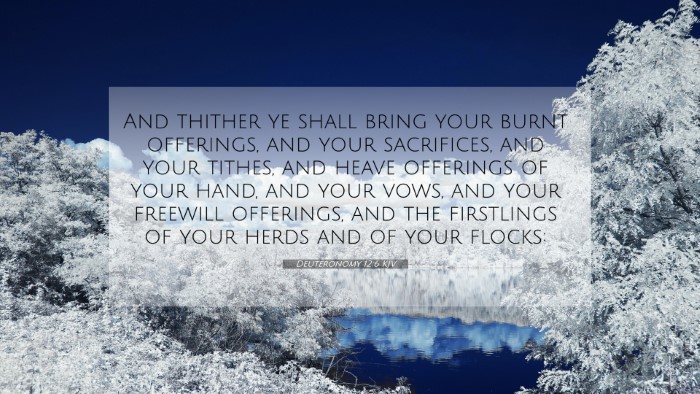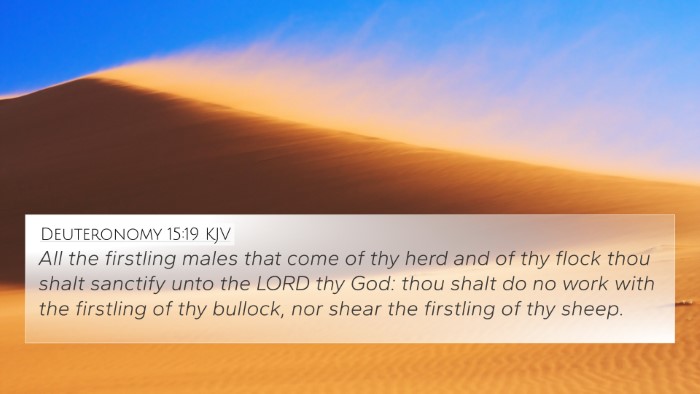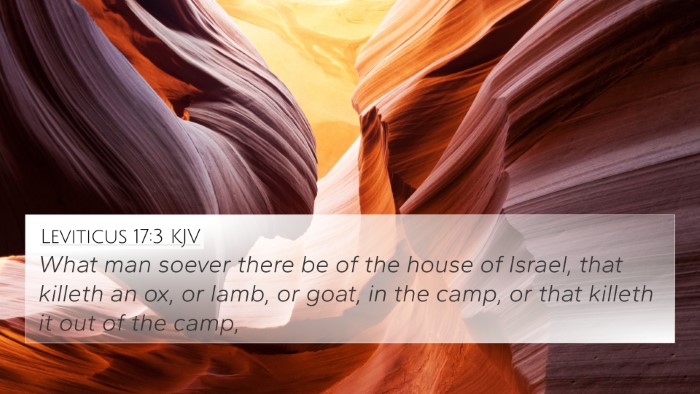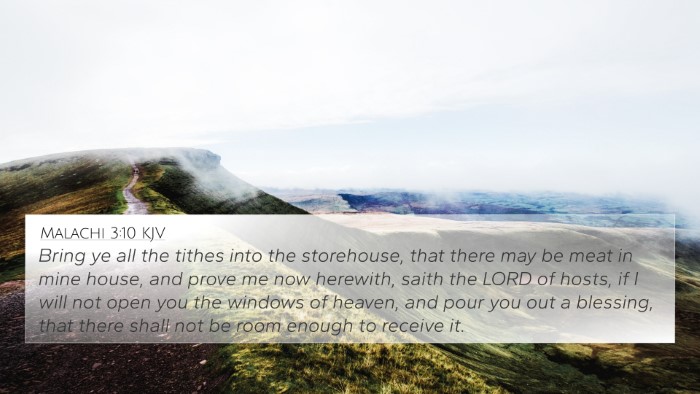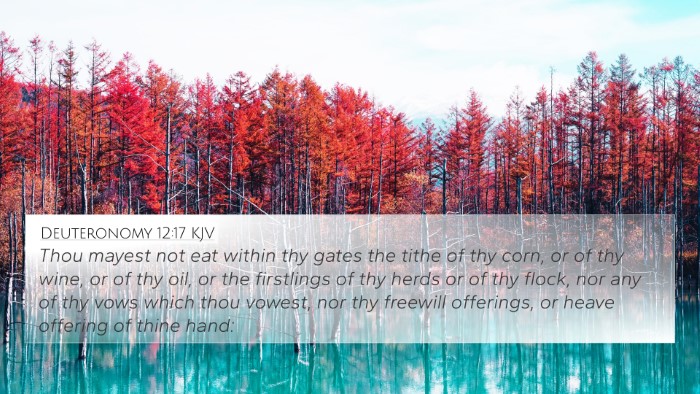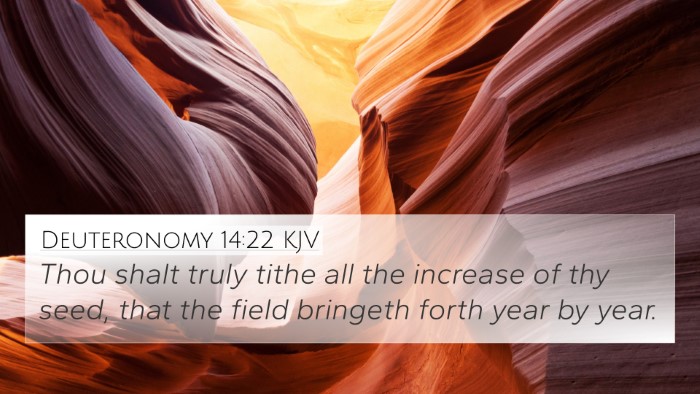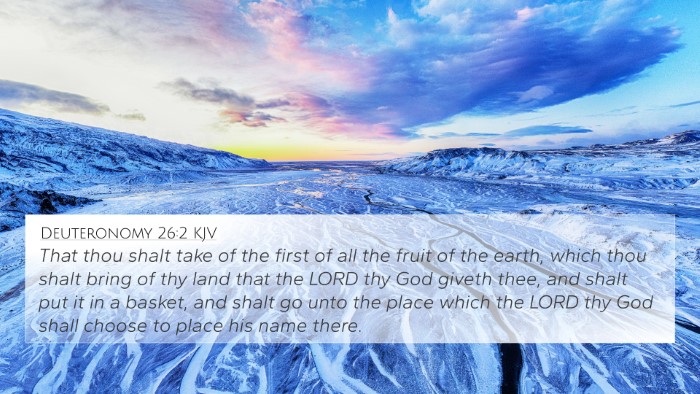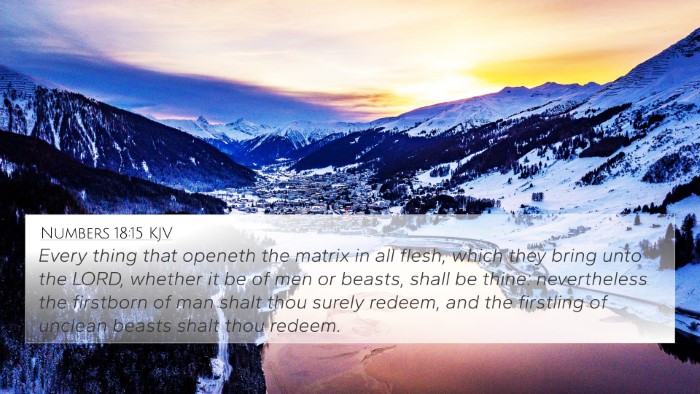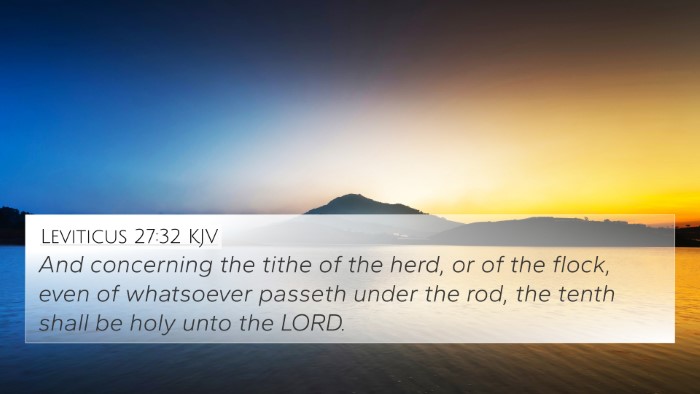Understanding Deuteronomy 12:6
In Deuteronomy 12:6, we see a significant directive concerning the worship of God within the nation of Israel. The verse reads:
"And thither ye shall bring your burnt offerings, and your sacrifices, and your tithes, and heave offerings of your hand, and your vows, and your freewill offerings, and the firstlings of your herds and of your flocks."
This verse emphasizes the singularity and holiness of worship as prescribed by God. In examining its meaning, we draw insights from several public domain commentaries.
Interpretation and Significance
Matthew Henry's Commentary:
Matthew Henry underscores that this directive was aimed at centralizing worship in one place, which was to be chosen by God. It was important for the Israelites to understand that their worship should not be scattered among various locales, but rather focused where God’s presence dwells.
Albert Barnes' Notes:
Barnes elaborates on the types of offerings mentioned in the verse. These offerings symbolize not just obedience but also gratitude, commitment, and acknowledgment of God's provision. Each type of offering has its purpose: burnt offerings symbolize devotion, tithes represent faithfulness, and freewill offerings reflect the generosity of the individual towards God.
Adam Clarke's Commentary:
Clarke highlights that the diversity of offerings signifies the multifaceted nature of worship and the relationship between God and His people. He argues that such structured worship helps to foster community among the Israelites, as they come together to present their offerings in accordance with God’s command.
Cross-References and Connections
This verse has several connections with other scripture passages, illuminating the themes of worship and offerings:
- Leviticus 1:10-13 - Details the procedure for burnt offerings.
- Numbers 18:21 - Discusses the tithes given to the Levites.
- Deuteronomy 14:22-29 - Expounds on how to bring tithes to the chosen place of worship.
- Malachi 3:10 - Encourages bringing the whole tithe into God's storehouse.
- Romans 12:1 - Presents the concept of offering one’s body as a living sacrifice.
- Hebrews 13:15 - Talks about offering praise as a continual sacrifice to God.
- 1 Peter 2:5 - Describes believers as a holy priesthood offering spiritual sacrifices.
Thematic Connections and Insights
The verse encapsulates broader biblical themes such as:
- Centralized Worship: The concept of focusing worship in one location indicates God’s desire for unity and order among His people.
- Offerings as Worship: Emphasizing various kinds of offerings denotes that worship through giving is integral to the covenant relationship.
- Community Aspect: Bringing offerings together fosters a sense of belonging and mutual support within the covenant community.
Comparative Bible Verse Analysis
In a comparative analysis, Deuteronomy 12:6 serves as a crucial link between the Old Testament sacrificial system and the New Testament understanding of worship and offering:
- Old Testament vs. New Testament Worship: Where the Old Testament emphasizes physical offerings, the New Testament transitions to spiritual offerings, such as faith, love, and obedience to Christ.
- Connecting Old Testament Sacrifices to Christ: The offerings foreshadow the ultimate Sacrifice of Jesus, who fulfilled all sacrificial requirements through His death and resurrection.
Application and Practical Insights
As modern believers, Deuteronomy 12:6 challenges us to consider how we approach worship. It serves as a reminder that worship should be:
- Intentional: Choosing to set aside time and resources for God.
- Collective: Engaging in the community and worshiping together, as the body of Christ.
- Diverse: Understanding that various forms of worship (prayer, praise, service) are acceptable and encouraged.
Conclusion
Overall, Deuteronomy 12:6 serves as a pivotal verse that connects various themes of worship, community, and sacrifice found throughout Scripture. In studying this verse and its connections, believers gain insight into the importance of proper worship in spirit and truth.
